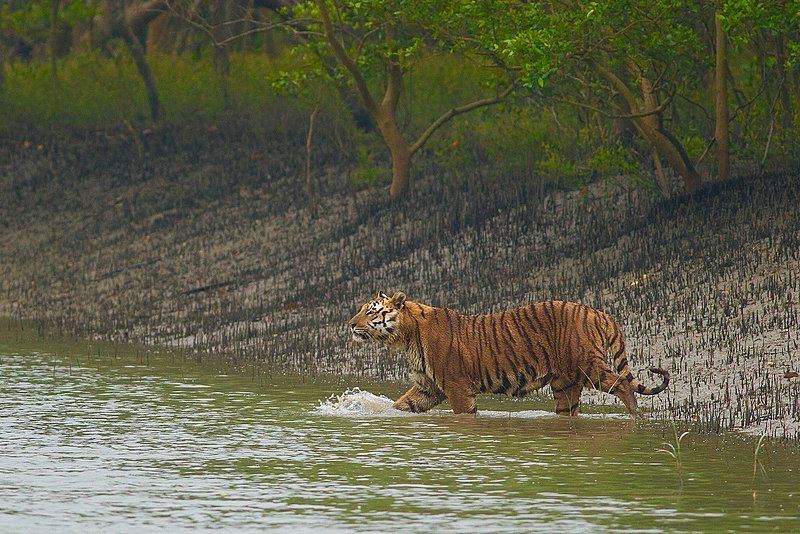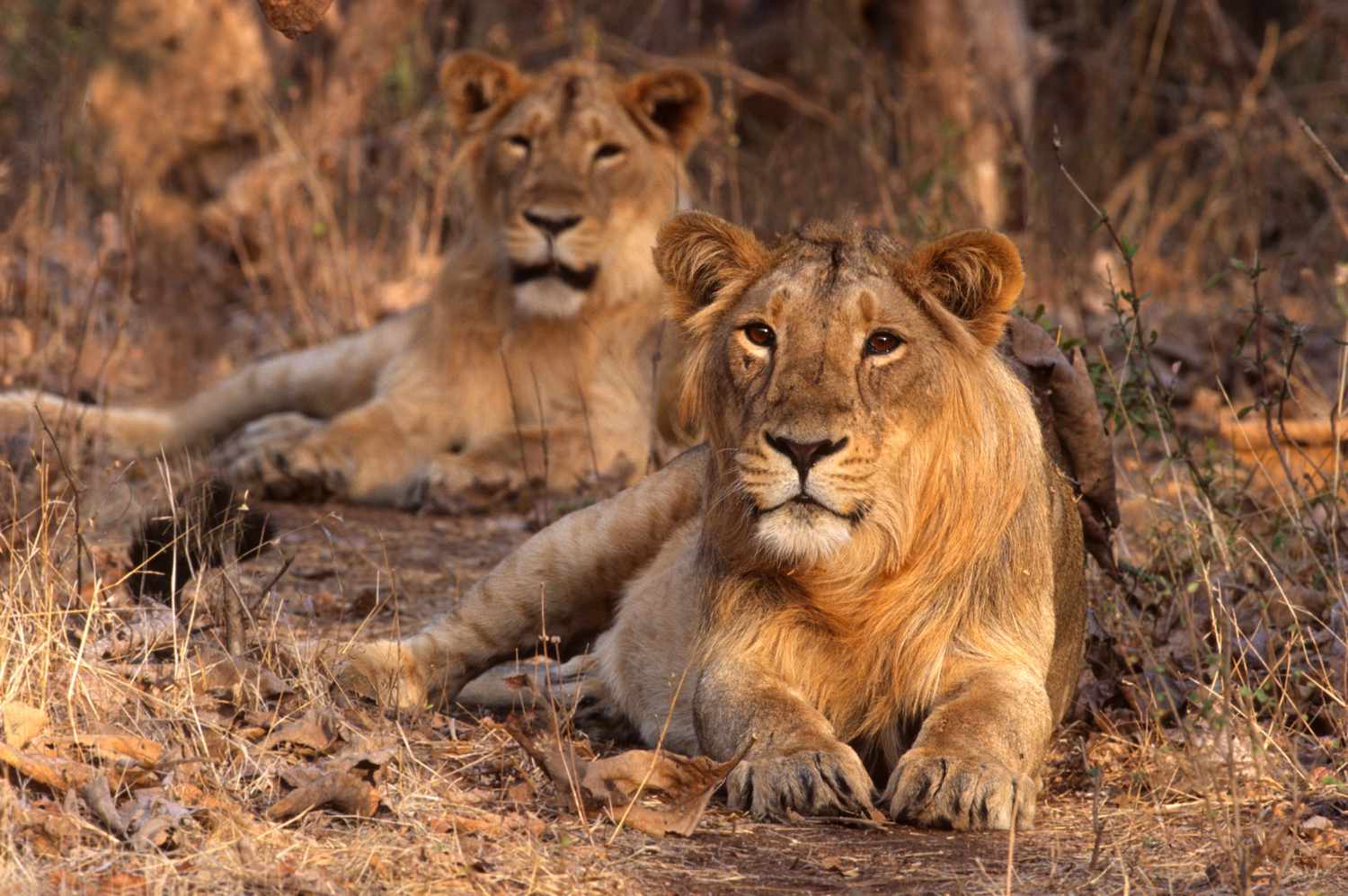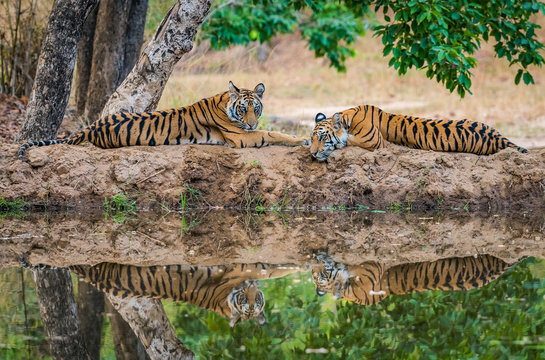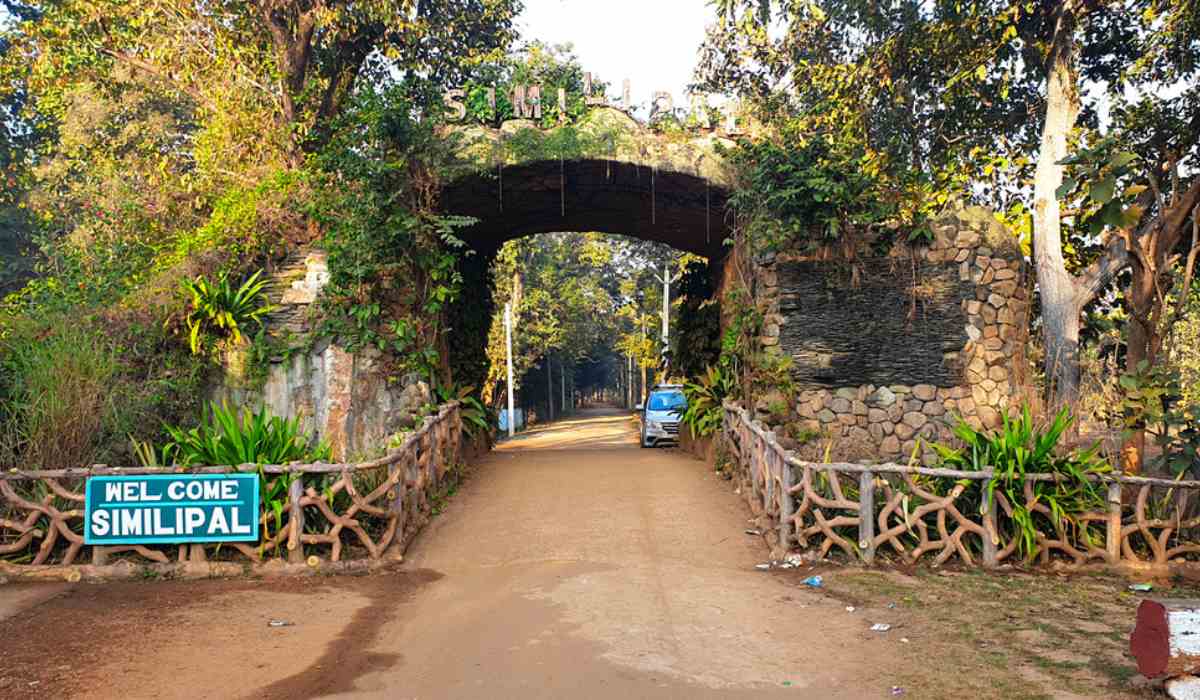India's Famous Wildlife Sanctuaries


India’s wildlife sanctuaries are havens of biodiversity, offering a safe refuge to majestic animals, rare species, and lush ecosystems. From dense forests and grasslands to wetlands and hilly terrains, each sanctuary tells a story of conservation and natural heritage. Visiting these protected areas is not only about spotting tigers or elephants but also about experiencing the wilderness, harmony, and beauty of nature in its purest form.
Wiki Link: India’s Famous Wildlife Sanctuaries

Jim Corbett National Park
Uttarakhand
Established in 1936 as Hailey National Park, Jim Corbett is India’s first national park and the birthplace of Project Tiger. Nestled in the Himalayan foothills, it is home to Bengal tigers, elephants, leopards, and over 600 bird species.
The diverse terrain includes grasslands, river belts, marshes, and dense forests. Jeep and elephant safaris offer thrilling opportunities to witness wildlife in their natural habitat.

Kanha National Park
Madhya Pradesh
Kanha’s lush meadows and sal forests inspired Rudyard Kipling’s The Jungle Book. Known as the “Tiger Reserve of India,” it shelters Bengal tigers, leopards, sloth bears, and barasingha (hard-ground swamp deer), which were revived from near extinction here.
Its vast landscape and well-organized safari routes make it one of India’s best-managed sanctuaries. The park is a paradise for photographers and nature enthusiasts alike.

Gir National Park
Gujarat
The only natural habitat of the Asiatic lion, Gir National Park is a globally significant sanctuary. Spanning dry deciduous forests, grasslands, and rocky hills, it shelters lions, leopards, striped hyenas, jackals, and over 300 bird species.
Conservation efforts here brought the Asiatic lion back from the brink of extinction. Jeep safaris allow visitors to spot these majestic predators in their natural domain.

Bandhavgarh National Park
Madhya Pradesh
Has one of the highest densities of Bengal tigers in the world, making it a hotspot for tiger sightings. The sanctuary also harbors leopards, deer, and over 250 bird species.
Ancient caves, rock paintings, and the historic Bandhavgarh Fort add cultural depth to the wild experience. Safaris through its varied landscapes offer an exhilarating blend of history and wilderness.

Ranthambore National Park
Rajasthan
One of India’s most popular wildlife sanctuaries, renowned for its majestic Bengal tigers. Set against the backdrop of the Ranthambore Fort, the sanctuary features lakes, rugged terrain, and dense forests.
Apart from tigers, it is home to leopards, marsh crocodiles, and a rich variety of birds. The dramatic ruins inside the park add a unique charm to wildlife exploration.

Periyar Wildlife Sanctuary
Kerala
Located in Thekkady, Periyar is famous for its scenic lake and thriving elephant population. Spread across the Western Ghats, it also shelters tigers, gaurs, wild boars, and rare lion-tailed macaques.
A boat cruise on Periyar Lake offers serene views of wildlife along the banks. Its evergreen forests and spice-scented breeze make it a unique blend of wilderness and tranquility.

Nanda Devi National Park
Uttarakhand
A UNESCO World Heritage Site, Nanda Devi National Park is set around the majestic Nanda Devi peak. The sanctuary is home to snow leopards, Himalayan tahr, musk deer, and a variety of alpine flora.
Its remote location and breathtaking landscapes make it a pristine wilderness. Trekking through its high-altitude meadows and valleys offers a rare adventure in untouched nature.

Kaziranga National Park
Assam
Renowned worldwide as the home of the one-horned rhinoceros. This UNESCO site also shelters tigers, elephants, swamp deer, and over 450 bird species. The sanctuary’s tall elephant grass, wetlands, and forests create a vibrant ecosystem.
Jeep and elephant safaris provide close encounters with rhinos grazing in their natural habitat. It is a conservation success story of global importance.

Sundarbans National Park
West Bengal
The Sundarbans, a UNESCO World Heritage Site, is the world’s largest mangrove forest and home to the iconic Royal Bengal Tiger.
Known for its swimming tigers, the park is crisscrossed with tidal rivers and creeks. It also shelters saltwater crocodiles, fishing cats, and diverse birdlife. Exploring by boat safari offers a unique way to experience its mysterious and thrilling wilderness.

Manas National Park
Assam
Another UNESCO World Heritage Site, is celebrated for its rare and endangered species. It shelters the golden langur, pygmy hog, wild water buffalo, and elephants.
The sanctuary is also a Project Tiger reserve and an Elephant reserve. Its pristine forests, riverine landscapes, and grassy meadows create a haven for wildlife and eco-tourism enthusiasts.

Tadoba Andhari Tiger Reserve
Maharashtra
Known as the “Jewel of Vidarbha,” Tadoba is one of India’s oldest and largest tiger reserves. The sanctuary’s mix of teak forests, grasslands, and lakes makes it a thriving habitat for tigers, leopards, wild dogs, and sloth bears.
It is also home to over 200 bird species, including raptors and waterfowl. The Andhari River flows through the reserve, adding to its ecological richness and scenic beauty.

Pench National Park
Madhya Pradesh & Maharashtra
Famed as the inspiration for Rudyard Kipling’s The Jungle Book, Pench offers a classic Indian jungle safari experience. Its teak forests and meadows shelter tigers, leopards, wild dogs, and jackals, along with 285 bird species.
The Pench River flows through the sanctuary, creating lush riverine zones. Night safaris and unique interpretations of wildlife here make it a favorite among naturalists and photographers.

Simlipal National Park
Odisha
Spread over 2,750 sq km, Simlipal is a biosphere reserve known for its rich biodiversity. It is home to tigers, elephants, gaur, and four-horned antelope.
The sanctuary’s landscape features waterfalls, rivers, and lush sal forests. With its mix of dense greenery and wildlife, Simlipal is both a natural wonder and a conservation stronghold in eastern India.

Dandeli Wildlife Sanctuary
Karnataka
Dandeli known for its thrilling mix of adventure and wildlife. The sanctuary houses black panthers, elephants, tigers, and a wide variety of reptiles.
Its lush deciduous forests and the Kali River make it a hotspot for birdwatching, with hornbills being a highlight. Visitors often combine wildlife safaris with white-water rafting and nature trails, making it a well-rounded wilderness destination.

Valmiki National Park
Bihar
Situated in the Terai region, Valmiki is Bihar’s only tiger reserve. The park shelters Bengal tigers, leopards, fishing cats, and antelopes.
With the Gandak River flowing nearby, its wetlands attract migratory birds during winter. Surrounded by lush forests and Himalayan foothills, Valmiki offers an offbeat yet enriching wilderness experience.

